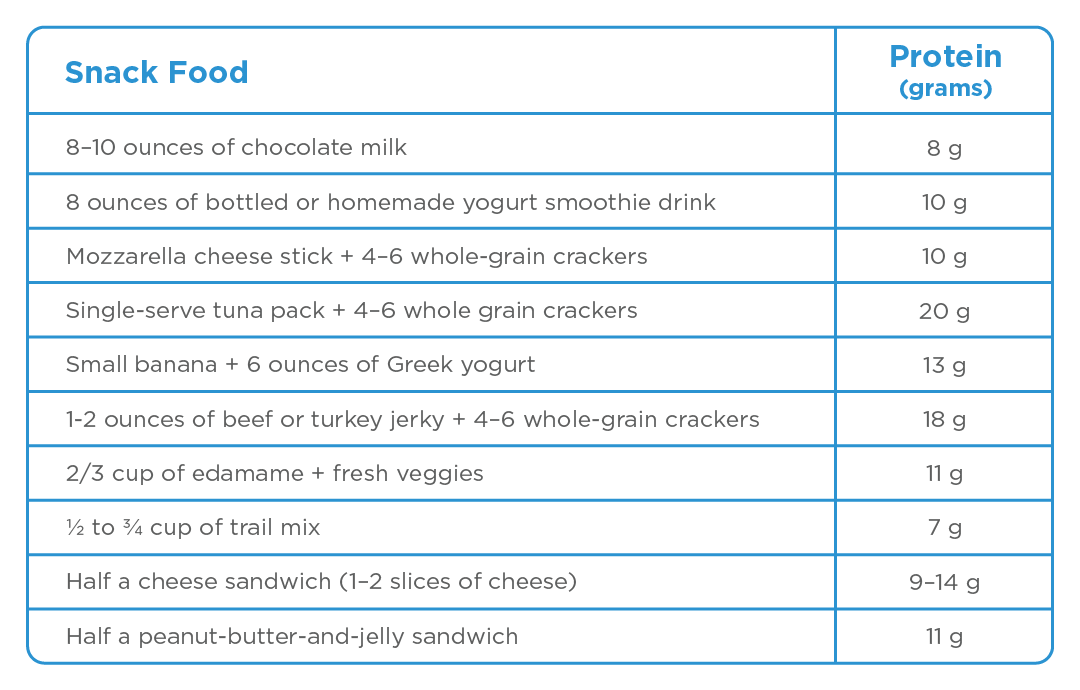Nov 29, 2023 /
Nutrition
By Melodyann Jones, MDA, RDN / Southpoint
Sports Nutrition Guidelines: Macronutrients & Micronutrients
When talking about sports nutrition for young athletes, most parents have questions about the types of foods their kids and teens should be eating to maximize their performance. In general, young athletes need slightly more protein than their nonathletic counterparts. This is because they’re building more muscle during exercise and need to make sure they eat enough to rebuild and repair muscles that are damaged during athletic activity. Additionally, foods rich in unrefined carbohydrates, such as wholegrain breads and cereals, should form the basis of a young athlete’s diet. Finally, with careful planning, a nutritious diet can also meet an athlete’s vitamin and mineral needs.
How Much Protein Do Kids Need? The recommended daily allowance (RDA) is 0.4-0.5 grams of protein per pound. This is the average amount kids need to meet their dietary needs, but increases for athletes as shown below:
–Non-active kids (same as RDA): 0.4-0.5 grams per pound
–During sports training: 0.7-0.8 grams per pound
–Maintenance/off-season: 0.5-0.6 grams per pound
For example, a 150-pound soccer player would need about 105-120 grams of protein a day during training.
Protein has a special role in post-exercise recovery. Several studies have shown that small doses of protein shortly after intense exercise can repair muscle damage and promote muscle gain. To improve muscle growth and response to training, eat protein after practice (within 60 minutes) and try to spread protein intake throughout the day, eating 20-30 grams at each meal. Below are some examples of protein-rich snacks to eat after exercise:

Carbohydrates are extremely important for the growing athlete because they are the body’s preferred source of fuel for athletic performance. The body stores carbohydrates, in the form of glycogen, in the liver and muscles to use when energy is needed quickly. After practice or competition, it’s important to replenish glycogen stores by eating carbohydrates. This allows the body to recover and prepare for exercise.
Many foods contain carbohydrates. The main goal should be to get the right amount of carbohydrates from the right foods, such as fruits, vegetables, grains, and dairy. Carbohydrates should comprise about 45-65% of a young athlete’s daily calorie consumption.
Below are some specific carbohydrate recommendations for the young athlete based on activity level:
–Low intensity or skill-based activity: 1.3 to 2.3 grams per pound
–Moderate exercise (1 hour per day): 2.3 to 3.2 grams per pound
–Endurance training (1 to 3 hours per day): 2.7 to 4.5 grams per pound
–Extreme training program (4 to 5 hours per day): 3.6 to 5.5 grams per pound
For example, a 120-pound female cross-country runner who practices 2 hours per day would need about 324 to 540 grams of carbohydrates per day. The table below shows some examples of carbohydrate foods:

Vitamins and minerals are key players in the metabolic function of the body, helping it to use the food we eat. Together, vitamins and minerals are called micronutrients, and each micronutrient has a specific job to do in the body that relates to keeping an athlete healthy and supporting their growth and development. The best way to ensure your athlete is getting all of the micronutrients they need is to eat a well-balanced diet. Calcium, vitamin D, and iron are three micronutrients of which a lot of young athletes don’t get enough.
Iron: Iron carries oxygen in the blood, shuttling it to organs and cells throughout the body, which need oxygen to function properly. When iron stores in the body are low, it can cause early fatigue, slow recovery from workouts, and a feeling of always being tired.

Calcium and Vitamin D: Calcium and vitamin D are nutrients involved in the bone building process, which occurs in childhood and teen years, then stops in early adulthood. Calcium levels in the blood are tightly controlled, so if a young athlete does not eat enough calcium, the body will pull calcium from the bones to deliver to the bloodstream. This may increase the risk of injuries such as stress fractures.

Remember, these calculations are meant to simply provide a general guideline of how much protein and carbohydrate a young athlete needs to eat. It is generally not necessary to track your child’s diet or make them stick to certain macros. Although athletes need to eat the right amount and mix of foods to support their higher level of activity, their diet may not be all that different from a normal healthy diet. Eating for sports should be another part of healthy eating for life.
©2024 Wasatch Pediatrics